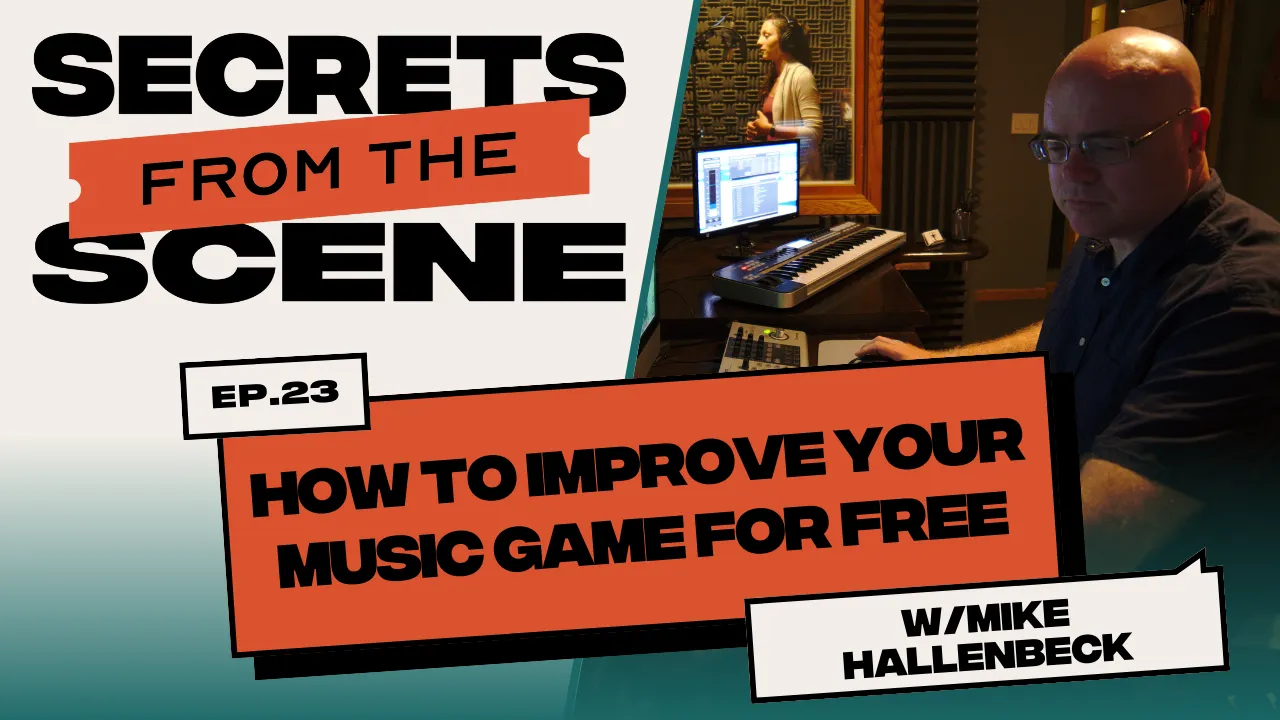Show Notes
Trying to pursue music can be financially challenging, especially when you're just starting out. If financial constraints have been impeding your progress in the realm of music, Mike Hallenbeck offers a valuable list of cost-free and time-efficient ideas to propel your musical pursuits forward.
Hallenbeck, a versatile audio enthusiast, boasts a skill set spanning across multiple instruments, composition, sound design, and mix engineering. As the proprietor of Cool Cat Audio, a post-production sound house, he brings a wealth of experience to the table. Recently, Hallenbeck rekindled a former project, 10 Items or Fewer, after a nearly two-decade hiatus. The revival process served as the inspiration for this episode, recognizing that many aspiring musicians grapple with financial constraints and/or time limitations. But these challenges don't need to hinder your progress.
In this episode, we explore the nuances that can significantly impact your musical career, emphasizing the minutiae that, despite their simplicity, wield substantial influence. Whether you find yourself restricted by a shortage of resources or time, these topics are readily accessible and can yield immediate positive impacts on your music career. Enjoy!
watch now on YouTube:
Connect with the Guest
Featured Song
Connect with Me
Give Feedback
📬 Send me a message: stephen@secretsfromthescene.com
💬 Suggest a guest or topic: podcast@secretsfromthescene.com
🎙️ Brought to you by:
--------------------------------
Thank You
This podcast is made possible by the hard work, expertise, and commitment of my team:
Max Greene and Joey Biehn. I'm forever grateful.
--------------------------------
Theme Music: "Thankful" Courtesy of LUEDVIG

